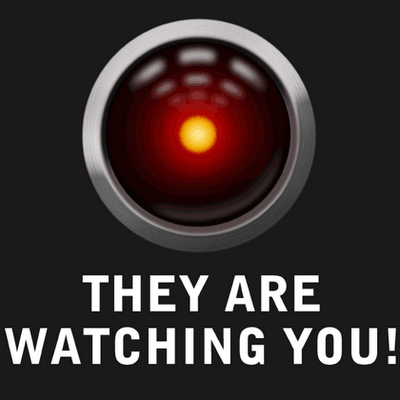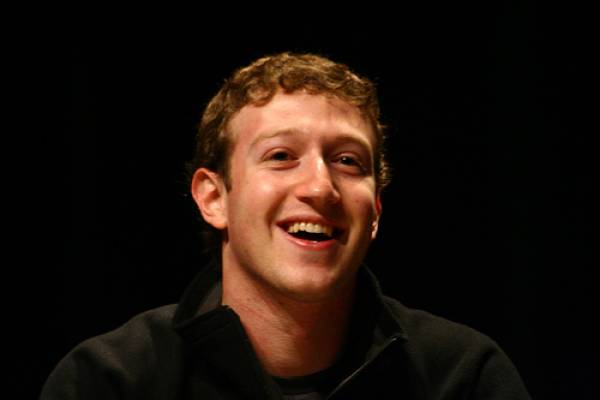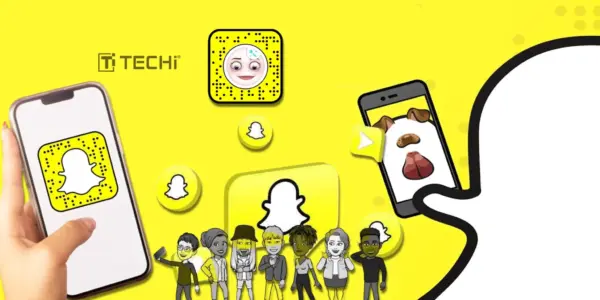With its most recent changes, Facebook is aiming for a more social and accessible web. But at what cost to privacy?
As Facebook closes in on half a billion users, it’s clear that it is a behemoth in the web world, arguably on par with Google, Microsoft and Apple in terms of sheer reach. And the changes announced at Facebook’s f8 developer conference seems to suggest Zuckerberg & Co. are intent on integrating themselves more and more tightly into the internet at large.
Now that we’ve had a couple of days to digest the news, it seems it’s time to reflect on what these changes mean. Some of them will make the web a more usable and friendly place for a broader slice of the population. Some of them are a bit boring. And some of them – well, some of them are downright scary.
The Good
So, what do Facebook think are so great about all these changes?
A More Integrated and Social Web
The core of the changes at Facebook is the idea that entire web should be social. See, right now, if you write a restaurant review on Yelp, there’s no easy way to let others know this unless they both also use Yelp and have friended you. Similarly, if you’re super-excited about a gadget you see on a tech site, to share it with others you have to cut and paste the link into Facebook. The web is segmented and divided with no clear way to aggregate your activity from all those different sites and networks you use.
Facebook’s new Open Graph initiative helps with this by bringing your social connections from Facebook into other sites. Head into Yelp and you’ll be able to see which restaurants or bars your Facebook friends have liked, and you’ll quickly be able to add your Facebook friends, essentially integrating aspects of the the two services into each other.
A More Accessible Internet
In much the same way that Twitter wanted to be @anywhere, Facebook is now everywhere. A new universal ‘Like’ button works in a manner similar to a Digg button – any website can quickly add the button to a post, and users who click it will have that activity show up in their Facebook activity feed. By doing so, Facebook becomes the platform that integrates all the scattered parts of your web experience in one place.
Part of the appeal of Facebook is often that it’s like an ‘internet-lite’. While many geeks find this aspect of the social network a bit objectionable, many people do not. There’s a reason your Grandpa is now you’re friend on Facebook, right? By storing and centralizing users’ interests, users who are logged into Facebook can get recommendations on any website from their friends. Time Magazine, for example, will suggest stories to you based on both your interests (as listed on FB) and on what your Facebook friends have liked.
What’s more, the universal Like button that can be put onto any website allows so that even the most technologically-challenged users can share things with their Facebook friends. So now mom can show you all those articles about getting married and making babies! Ahem.
A Clearer Sense of Community
Another new feature is Community Pages, which are created around topics and ideas rather than brands or personalities. So say you’re a fan of Indian Cooking – you can create or just go to the page for that topic, join, and then get updates about put into your feed, which is great for keeping up with your interests.
A Better Google Documents
As Google’s online Documents program starts to lag a bit, Microsoft made a surprise announcement: Docs.com, which allows you to work on shared online documents with your Facebook friends. Beyond a pretty slick interface, it also means Facebook finally gets some business-savvy, which can only help to cement its massive user base – and if they ever start to leverage all that contact information, send Linked In scrambling back to the drawing board.
The Bad (or the meh)
Well, this isn’t really ‘bad’ per se, but Facebook also announced a toolbar that will sit above a web site and allow users to share and like things. I think we can all agree that seamless is better – I’m sure I’m not the only one who closes any toolbar the moment it pops up – and anything that gets between you and the web is just a pain. You can file this one under M for ‘meh’.
The Very Ugly

‘For all the benefits to Facebook’s changes, there’s another side to these changes. And just like in the past, it’s Facebook’s tenuous grasp on those little, unimportant things like ‘privacy’ and ‘the open internet’ that’s the problem here. Looked at this way, the changes at Facebook mean the Zuck and Co. are not only joining Microsoft, Google and Apple in the battle for ‘most influential company’ – but for the title of ‘the web’s most evil company’ too.
Apps Now Know Way Too Much About You
Facebook applications can access a hell of a lot about you: your hometown, your likes and dislikes, your favorite movies and music – basically anything you’ve listed in your profile. That means that any application – that may or may not have good security – has information on millions of users. Can you imagine what kind of data is on the servers at Farmville?
What’s worse, with Facebook’s new Open Graph API, all those likes travel with you as you surf the ‘net. Log into Pandora and you’ll get music based on what you’ve listed on Facebook. Things you may want to keep private on Facebook may follow you around the web – and vice versa.
It’s Hard to Opt Out
So, after the huge backlash against Beacon, Facebook have learned their lesson, right? Nope.
Opting out of ‘instant personalization’ may stop applications and other websites from using your info, but your friends can still share things about you. If you want to stop all potential sharing beyond your friends, you need to block each app individually. Not exactly user friendly.
A Universal Service Is Not the Goal
The aim of Facebook’s new integration is that the whole web be like your own social network. Except, here’s the thing: I like having my social networks separate. My friends on Twitter are not the same as those on Facebook, nor are they the same as on Yelp or any other platform.
Everyone’s life is like this. You have a core group of friends and then a group of peripheral and online friends who you don’t want to know everything. In attempting to make everything available to everyone, Facebook are trying to tear down walls between social groups that are not only normal and common, but healthy.
This Is More About Facebook’s Market Share Than User Happiness
While it’s true that some users will benefit from these changes, the underlying from Facebook here is: “how do we cement our enormous growth?”.
The answer seems to be that Facebook wants to make itself the social backbone of the web. All of these moves smack of a company that is attempting to put its own business interests first and foremost above the specific needs of its users. Facebook has constantly been criticized for its stance on privacy – and they don’t seem to listen.
For the reasons outlined above, this has some serious downsides.
Conclusion: Facebook: You Got Some ‘Splaining to Do
You know that Facebook friend who’s really a professional contact and you added only out of politeness? With Facebook’s new approach to integration, you’ll soon know far more about that person than you might want to: their music tastes, their activities, what they’re reading – and in the future, probably even where they are (Facebook’s Foursquare-like location services are probably on their way).
By doing so, Facebook isn’t just changing a web service – they’re the changing the ideal of privacy. What’s worse, they seem to be making changes while banking on the idea that the bulk of their userbase won’t even be aware of the downsides. It’s underhanded and it’s no way to continue to build the service.
Making a more accessible web is a noble thing to do. But Facebook’s attempts here have fallen short of the mark by unfairly and excessively encroaching on users’ privacy. And unless they make changes soon, they deserve every ounce of backlash that comes their way.
Note: If you wish to delete your Facebook account, you can start by clicking here.





